There's also the associated possibility of actually, like ATTENDING Worldcon, but that's an additional cost I haven't taken on as yet. (But if they have it in Seattle in the near future, as some have suggested....)
As the host of Worldcon this year is in China--Chengdu, specifically--there have been some interesting hurdles that I won't really grumble about. It's worth noting, however, that because of the location, there was a slightly different body of voters/nominators than before. (Worldcon, in my recollection, has most often been hosted in English-dominant locations.) Which is neato, in that there are many more folks of Chinese nationality (not just descent, mind you--in recent years, the diversity of nominees has been markedly increasing) nominated. Between that AND a short window for nominees to provide materials (I think a couple of the zine/podcast nominees specifically noted in their packets they only had eleven days), that also meant not everyone was able to get their materials translated in time.
Or: There were several nominees who were only able to share their materials in Chinese and not any translations in English. (And, to be fair, vice versa: Several of the nominees who shared things in English only added apology notes.) Some nominees could only share part of their materials in both languages; some folks who shared translations confessed they had to rely on AI/machine-translation in order to get it done before their deadline. In those cases, you could almost feel the absence of nuance. (In the case of one short story, that's almost the point--in the Astounding category, Maijia Lu's story "Left" is specifically about how the pictographic basis of Chinese language means some elements of physics can be expressed more wholly than in phonetic-based scripts like English.)
I find this interesting and not irritating, though YE GODS, can you imagine how I feel, having multiple stories and books in my possession that I cannot read? My heart, she is breaking. But also, this is a cool problem to have, no? From my perspective, anyway.

Last year, I decided to input snippets from everything I read, and that was really fun, so I did it again this year.
As usual, texts I consumed prior to nominations are in green and those I consumed after nominations came out are in blue. (I copied this listing from Tor, as the official listing from the Chengdu Worldcon was written out in multiple languages.) Stuff I owned before nominations but consumed afterwards are flagged in purple. (Because I MEANT to consume them! There are just a lot of books out there!) And stuff in pink means I read a chapter or two, but not the entire work.
The Hugos have ranked voting, meaning I can indicate the order of my esteem for the nominees in each category. They also provide the option for not ranking a work. A few of the nominees didn't have English-language translations available; in those cases, I opted to rank them lowest in the categories, rather than not ranking them at all. (I've not ranked things in previous years when I wasn't able to read them, but I decided to do it differently this time around.) A lot of these were really tough--when you have six excellent things categorized by media or length, rather than sub-genre or purpose, what metrics do you use to judge them?
We received our packets in August this year, so I was reading down to the wire. As always, however, it was fun. Highly recommend!
Astounding Award for Best New Writer
- Isabel J Kim,* with a set of ten short stories
I read three of the short stories provided. I loved all the ones I read; I'll probably read the rest soon. From "Termination Stories for the Cyberpunk Dystopia Protagonist":
The present is a tool to create the past, and the past follows the Tourist’s needs. Water follows the most obvious path, and Cool and Sexy Asian Girl has learned to be a conduit.
- Everina Maxwell,* with Ocean's Echo
By this point in their working relationship, Tennal recognized it: the painstaking inevitability of a cat that had been presented with the end of a piece of string; only instead of string, it was a potential injustice.
- Travis Baldree, with Legends and Lattes
It was ridiculous, of course. A coffee shop? In a city where nobody even knew what coffee was? Until six months ago, she’d never heard of it, never smelled or tasted it. On the face of it, the whole endeavor was ludicrous. She smiled in the dark.
- Naseem Jamnia, with The Bruising of Qilwa
Another Firuz could have met Kofi's hope with defiance, could have scoffed and denounced this plan, but this Firuz cradled their broken heart, offered it to the man who had been mentor and friend and family.
- Maijia Liu, with a set of short stories
One of the stories, "Left," had an English translation. (The rest were in Chinese.) From "Left":
"I'm not suggesting writing your paper in Chinese. I mean, expressing physics in Chinese. Haven't you realized that explaining a higher-dimensional universe with a two-dimensional language system is indeed quite challenging?"
"A two-dimensional language system?"
"That's right. Including all Indo-European languages, such as English, they are all phonetic scripts, two-dimensional language systems. You geniuses in the sciences only focus on the causality of tangible things and neglect the importance of expressing ideas." - Weimu Xin,* with a set of short stories. (They did not include any translated into English.)
Lodestar Award for Best Young Adult Book
- Osmo Unknown and the Eightpenny Woods by Catherynne M. Valente (Margaret K. McElderry Books)
This is very much like The Phantom Tollbooth, in fact, which I actually need to reread in the near future, as it's been a while.
There's a scene at the River After, where the ferryman asks each of the dead three questions before they cross: Were you kind? Were you tamed? Did you add your truth to the Great True Tale? And I don't know, that seems a good way to judge a life. It's certainly how I want to measure mine.
"There is a moment in every creature’s life where they will arrive at some truth that no one else has ever thought of quite that way. It happens to everyone, even clams and dandelions. The trouble is remembering it, and recognizing it for what it is, when there is always so much washing and brushing and sleeping crowding in. What was yours?"
- Bloodmarked by Tracy Deonn (Simon & Schuster Books for Young Readers)
No longer the point of the spear, the tip of an arrow.
Not the strongest girl anyone knows.
Not the most incredible girl, or the impossible one.
No longer the pain-welded blade. No longer a blade at all. No one’s weapon but my own. - In the Serpent's Wake by Rachel Hartman (Random House Books for Young Readers)
"We storytellers get blamed for all kinds of things--corrupting the young, failing to paint a glorious picture of our queen, insulting the priests--but our obligation is to dig into our own hearts and expose the truths there. Sometimes our hearts are full of monsters. It takes valor to look them in the eye."
- Dreams Bigger Than Heartbreak by Charlie Jane Anders (Tor Teen/Titan Books)
"As soon as I stopped trying to do the same art I used to, I became excited again. I felt as though I couldn't stop creating if I wanted to. That's the main lesson that I learned: any art you can make in the face of unbearable sorrow is good art."
- The Golden Enclaves by Naomi Novik (Del Rey)
I was angry at them for everything they’d done to build it, and I also couldn’t stand to just turn my back and let it all come tumbling down. It wouldn’t have fixed anything they’d done. It would only have made an even worse waste of it all. Or maybe that was just an excuse I was giving myself for wanting to save the place; maybe it was just my own greed talking.
- Akata Woman (The Nsibidi Scripts) by Nnedi Okorafor (Viking Books for Young Readers)
"The Road is trouble you have to choose to seek," Sugar Cream said, holding out the piece of wood. "Come and get your map."
Best Fan Artist
There isn't really "reading" artwork in the same way, so I didn't color-code these. Rather than quotes, I've included whichever piece in their submission packet I liked the best and then linked to their websites for curious folks.
- Laya Rose
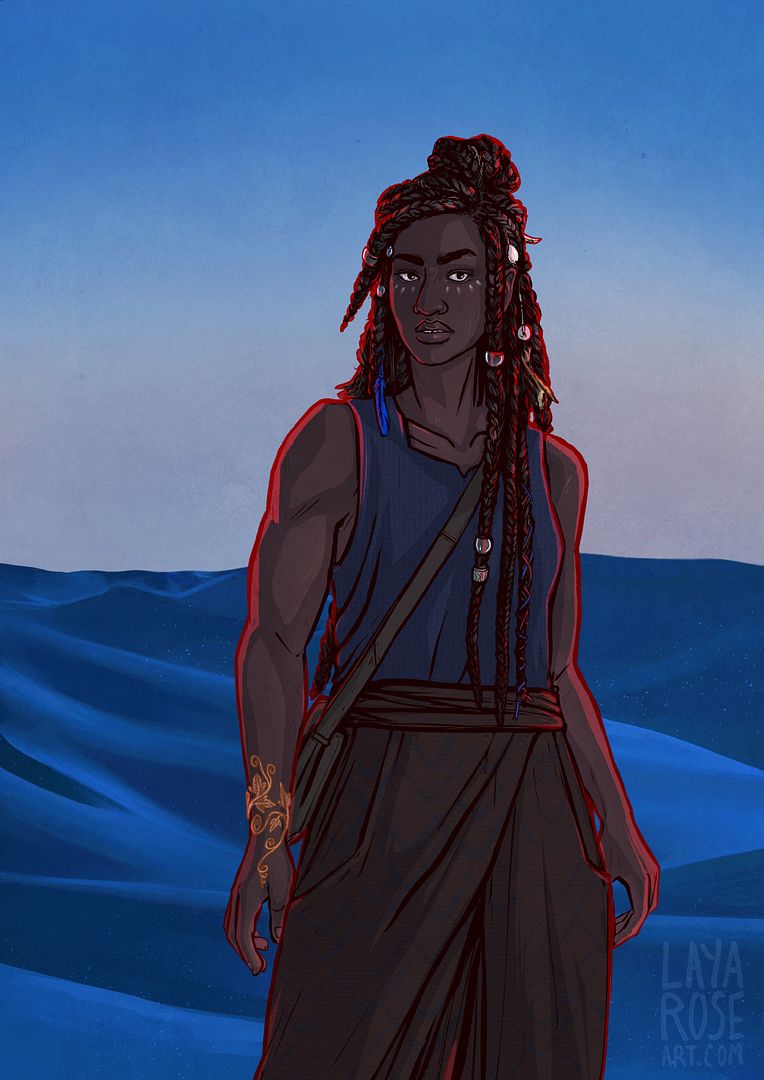
- Richard Man
Man's project is "The WorldBuilders Project," a pretty cool photo project of many, many SFF creators! I haven't clipped any art to put here, as it's a bunch of pictures of smiling humans, basically--the totality of the project is what's impressive. Click and check it out!
- Iain Clark
.jpg)
- Orion Smith
- Alison Scott

- España Sheriff
Best Fan Writer
- Bitter Karella, providing excerpts from their "Midnight Pals" project, tweets and stories and all sorts of pan-genre multi-modal spoofing horror and fantasy tropes.
H.P. Lovecraft: Submitted for the approval of the Midnight society, I call this The Tale of the Non-Euclidian Geometry
King: ok what does that mean exactly
Barker: i 've been wondering about that too
Lovecraft: what do you mean
Poe: you do bring this geometry up a lot, howard - RiverFlow, providing a packet of research they've done about science fiction fandom and societies--it's quite impressive, though only part of the materials is translated into English.
From "Chinese Science Fiction Platforms: Professional and Fan-based":
However, I also recognize that the label of fanzine is perhaps not enough to address the positioning of those semi-scholarly, semi-fanbased magazines. Like Wu, many people who later became professional researchers and publishers started off as SF fans and major contributors to grassroots efforts. Therefore, fanzines they organized often carried a certain duality that blurred the boundary between fan endeavor and professional project.
- Örjan Westin, providing excerpts of many stories posted on the Twitter account @MicroSFF.
From 2022-02-22:
"Excuse me, someone said you are the swordmaster?"
The gardener looked up from the carrots. "I was."
"Oh."
The gardener resumed weeding.
"But... you can't just stop being someone."
"I'm still someone, just not that one. Nobody is only one someone. Which ones you are can change." - Jason Sanford, providing a packet of mostly articles/columns from his newsletter, Genre Grapevine.
From a posting on December 31, 2022 (which is not wholly representative--I think the strength of his work is the collecting of many, many bits of information to create commentary on current events impacting SFF):
I want the SF/F genre to be a light for anyone who needs it, as I needed it when I was young. As I’ve needed it in recent months.
Embrace the light wherever you can see it. Seek the light wherever it can be found. It doesn’t matter if the light is a story you love or a poem that touches your heart or a convention you attend or a friend you talk to. Seek that light. - Arthur Liu, providing a packet of blog-type articles.
From "An Encounter with Mars at Lenghu":
"You have exceeded the speed limit set by the Planetary Administration Office." A short while later, the AI on-board began to speak. To enter the Demoniac Town of Obo Liang, you must carry a GPS tablet for navigation and information. It would also guide the car according to the preset routes and speed limits. The tablet came with its own voice assistant that sounded like a robot from Japanese animations, fastidiously infused with emotions while remaining cold. Its persistent warnings became the most ridiculous thing of the whole journey—now that we were already on Mars, why should we follow the same traffic rules on Earth?
- Chris M. Barkley, providing a packet of blog columns.
From "So Glad You Didn't Ask #69":
In other words, the fandom of the early days is as far removed from today’s fandom as the fictionof Nathaniel Hawthorne is from N. K. Jemisin, the art of Rembrandt from Jon-Michel Basquiat, the musical Oklahoma! is to Hamilton and the swinging moves of Benny Goodman are from the grooves of Rihanna.
Best Fancast
None of these are podcasts I have been listening to on a regular basis, though all of them, I think, are nominees from previous years, so I've definitely listened to episodes before! I decided to color these all as blue rather than pink, to indicate I listened to 2-3 complete episodes of each of these, even if I didn't listen to alllll of the episodes in the eligibility period. Because, y'know. They're podcasts! They're weekly or biweekly! That's a lot!
Rather than excerpts, I've included links to one of the episodes I listened to for each of these.
- Worldbuilding for Masochists by Cass Morris, Rowenna Miller, Marshall Ryan Maresca
Episode example: Farm to Table Fantasy ft. Sarah Gailey
- Hugo, Girl! by Haley Zapal, Amy Salley, Lori Anderson, and Kevin Anderson
Episode example: Barrayar: World of Vorkraft
- Hugos There by Seth Heasley
Example episode: The Obelisk Gate by NK Jemisin (ft. Lacey Jane Wolfe)
- Coode Street Podcast presented by Jonathan Strahan and Gary K. Wolfe, produced by Jonathan Strahan
Episode example: The Coode Street Advent Calendar: Nghi Vo
- Kalanadi created and presented by Rachel (this is on YouTube, so not technically a podcast)
Episode example: Winter's Orbit and Ocean's Echo by Everina Maxwell
- Octothorpe by John Coxon, Alison Scott, and Liz Batty
Episode example: Do You Want to Talk About Lesbians?
Best Fanzine
- Nerds of a Feather by Roseanna Pendlebury, Arturo Serrano, Paul Weimer, Adri Joy, Joe Sherry, Vance Kotrla, G. Brown, providing a packet of articles for review.
From the introduction to their packet:
It’s a vulnerable thing, putting an essay out into the virtual world, especially when your opinions touch on personal themes, your own experiences, how the media you’re discussing intersects with your identity and worldview. You’re opening yourself up for comment and criticism alike, and even the compliments can sometimes feel A Lot. That so many people keep doing it, keep making these beautiful, thoughtful pieces on media of all kinds, is part of what makes it worth celebrating.
- Unofficial Hugo Book Club Blog by Olav Rokne and Amanda Wakaruk, which provided several excerpts for review, but you can find all their stuff here.
From the piece "Space Nazis Must Die":
But depiction without engaging with the premises of motivation is lacking. “Nazi” is such an easy signifier for evil, it often allows these narratives to avoid engaging with what evil actually means. Sure, Imperial Soldiers kill a lot of people in the Empire Strikes Back, but so do the zombies in Train to Busan, or the tornado in Twister, or the Xenomorphs in Alien. The faceless hordes provide little more than target practice for laser rays; there’s no interiority behind the mirrorshades and white perspex armour.
- Journey Planet by Regina Kanyu Wang, Yen Ooi, Arthur Liu, Jean Martin, Erin Underwood, Steven H Silver, Pádraig Ó Méalóid and their other co-editors, providing several issues in their packet, but you can check out their archive here.
From the editorial introduction to issue 76, "Anthropocene Ruminations":
As editors, we sought out voices from beyond our own catchments and are excited to present commentary that is thoughtful and critical in ways that we hope will resonate with a diverse audience. As one of the Earth’s most influential climate fiction authors says in our opening interview, "it’s about the policies."
- Galactic Journey by Gideon Marcus, Janice Marcus, Tammi Bozich, Erica Frank, Arel Lucas, and Mark Yon, providing a packet of selected articles, though you can peruse their archive here.
From their packet introduction, which highlights they go allllll the way back to the 60s:
Imagine living at the dawn of the New Wave of science fiction and fantasy. A beleaguered LBJ is struggling with the War in Vietnam and a War on Poverty. The Gemini and Voskhod space programs are done, but tragedy has set back both Apollo and Soyuz. Star Trek is gracing the small screen, while 2001 is expected on the silver screen by the end of the year. Joanna Russ and Ursula K. Le Guin are promising new science fiction authors. Spider-Man, The Fantastic Four, The X-Men, and the Avengers are bursting onto the comics scene. What would it be like to actually be there, experiencing life, the movies, the books, the music, day by day?
- Zero Gravity Newspaper by RiverFlow and Ling Shizhen, with a 262-page packet to review. Unfortunately, it wasn't translated into English, but it did look great!
- Chinese Academic SF Express by Latssep and Tianluo_Qi--Two issues were provided, but neither were translated into English--they did look very cool, though.
Best Semiprozine
- khōréō, edited by team khōréō, providing four issues in their submission packet, though you can find their entire archive here.
From their packet introduction:
khōréō has been named for the English transliteration of χωρέω, meaning (among other definitions) “go forward, advance”; “go forward, make progress”; “be spread abroad.” It is also the English root of -chore, which defines how organisms such as seeds are spread: hydrochore (spread by water), aerochore (air), ornithochore (birds). We hope to transport you with our stories: by spaceship; by foot; by time; by sheer force of imagination.
- Strange Horizons, edited by the Strange Horizons Editorial Team, providing a wide sampling of their work, though you can find their entire archive here.
From their about us page:
Speculative fiction has a vibrant and radical tradition of stories that can make us think, can critique society, and can show us how it could be otherwise, for better or worse. We aim to be part of that tradition, and to update it: in the twenty-first century, speculative fiction must be a global, inclusive literature. We want to showcase work that challenges us and delights us, by new and established writers from diverse backgrounds and with diverse concerns.
- FIYAH, edited by the entire FIYAH team. They provided four issues in their submission packet, but you can find their entire archive here.
From their website mission statement:
What does it mean to be Black and look at intersectional issues of equality through the lens of science fiction and fantasy? Where are those stories in the canon? There is Black excellence out thezzre waiting to be discovered and not tokenized. Octavia Butler is our past and she is an amazing ancestor, but she should not be our only storyteller.
This is the future of Black SFF. - Uncanny Magazine, publishers and editors-in-chief: Lynne M. Thomas and Michael Damian Thomas; managing/poetry editor Chimedum Ohaegbu; managing editor Monte Lin; nonfiction editor Meg Elison; podcast producers Erika Ensign and Steven Schapansky, providing a whopper of a packet of sample texts from their publication, though you can find their archive here.
From one of the editorial introductions in the packet:
Each issue contains intricate, experimental stories, nonfiction, and poems with verve and imagination, which elicit strong emotions and challenge beliefs, from writers of every conceivable background. Uncanny believes there’s still plenty of room in the genre for tales that make you feel.
- Escape Pod, co-editors Mur Lafferty & Valerie Valdes; assistant editors Benjamin C. Kinney & Premee Mohamed, host Tina Connolly, producers Summer Brooks and Adam Pracht.
This is a podcast! But they also provided a PDF with text (as I scan their website, it seems they provide text for all their work simultaneously with the pod), so I'm not approaching it like a podcast. You can find their entire archive here.
From their packet introduction:
As the world continues to burn, literally and figuratively, escapism can look like different things to different people. Tor some, it’s a vacation from harsh reality into a kinder fictional universe. For others, it’s confronting current problems and working through them, finding solutions or solidarity. For still others, it’s the dream of being able to shoot lasers at jerks. Whatever your escape preference may be, we’ve tried to supply a steady stream of great narratives to comfort, uplift, empower and entertain.
- PodCastle, co-editors Shingai Njeri Kagunda and Eleanor R. Wood; assistant editor Sofia Barker; Host Matt Dovey; audio producers Peter Adrian Behravesh, Devin Martin, and Eric Valdes, providing a packet to represent the audio + text publications of their publication, though you can find the entire archive here.
From their submission packet:
PodCastle specializes in all genres of the fantastic and our stories span the genre, from classic sword & sorcery tales to the bleeding edge of speculative realism, hurtling through worlds both imagined and just to the left of our own. Every episode is self-contained, and a wonderful way to sample new authors or new work from familiar favorites.
Best Professional Artist
- Sija Hong
- Kuri Huang
- Paul Lewin
- Alyssa Winans
- Jian Zhang (I didn't have any luck finding their website, alas)

- Enzhe Zhao

Best Editor, Long Form
It's always hard for me to do the long-form editor ranking. Like, sometimes they tell us their editorial philosophy, but sometimes it's just like, Here are the books I edited. For my rankings, if I knew the works the person had edited, they usually floated to the top.
- Lee Harris
- Ruoxi Chen
- Lindsey Hall
- Sarah Peed
- Haijun Yao
- Huan Yan (I didn't have any luck searching for them, and they even included untranslated works in their submission packet, alas)
Best Editor, Short Form
Short-form editors are a bit easier for me to grasp, as they do stuff like anthologies and short stories, so I guess I get a better feel for the kind of stuff they're doing re: selection and curation.
- Sheree Renée Thomas, who shared a whopper of a packet, including excerpts from The Magazine of Fantasy and Science Fiction, Sorghum and Spear, and Trouble the Waters.
- Neil Clarke, who provided a collection of short stories he's edited for Clarkesworld.
From his editorial philosophy:
Editing is more than just working with authors on refining their stories and getting them in front of readers. It’s also about opening doors, discovering new voices, removing excuses, and moving things forward for everyone involved in the process.
- Oghenechovwe Donald Ekpeki, who provided Bridging Worlds: Global Conversations on Creating Pan-African Speculative Literature in a Pandemic
- Scott H. Andrews, who shared several issues of Beneath Ceaseless Skies in his submission packet.
- Xu Wang, whose packet did not include works translated into English
- Feng Yang, whose packet did not include works translated into English
Best Dramatic Presentation, Short Form
- Andor: “Rix Road” written by Tony Gilroy and George Lucas, directed by Benjamin Caron (Lucasfilm)
- The Expanse: “Babylon’s Ashes” written by Daniel Abraham, Ty Franck, Naren Shankar, directed by Breck Eisner (Alcon Entertainment)
I wasn't able to find a clip of the scene I wanted, so here's an explainer of the episode instead, I guess?
- Andor: “One Way Out” written by Beau Willimon, Tony Gilroy, and George Lucas, directed by Toby Haynes (Lucasfilm)
- She-Hulk: Attorney at Law: “Whose Show is This?” written by Jessica Gao, Francesca Gailes, and Jacqueline Gailes, directed by Kat Coiro (Marvel Entertainment)
- For All Mankind: “Stranger in a Strange Land” written by Matt Wolpert and Ben Nedivi, directed by Craig Zisk (Tall Ship Productions/Sony Pictures Television)
- Stranger Things: “Chapter Four: Dear Billy” written by Matt Duffer, Ross Duffer, and Paul Dichter, directed by Shawn Levy (21 Laps Entertainment)
I haven't watched Stranger Things since the first season; I didn't have time to catch up, and it didn't seem like I could just watch a random fourth-season episode on its own.
Best Dramatic Presentation, Long Form
- Severance (Season 1), written by Dan Erickson, Anna Ouyang Moench et al., directed by Ben Stiller and Aoife McArdle (Red Hour Productions / Fifth Season)
- Everything Everywhere All at Once, screenplay by Daniel Kwan and Daniel Scheinert, directed by Daniel Kwan and Daniel Sheinert (IAC Films / Gozie AGBO)
- Black Panther: Wakanda Forever, screenplay by Ryan Coogler and Joe Robert Cole, directed by Ryan Coogler (Marvel Studios)
- Turning Red, screenplay by Julia Cho and Domee Shi, directed by Domee Shi (Walt Disney Studios / Pixar Animation Studios)
- Nope, written by Jordan Peele, directed by Jordan Peele (Universal Pictures / Monkeypaw Productions)--I have not worked up the courage to watch it yet, but I also trust everyone that it's extremely good.
- Avatar: The Way of Water, screenplay by James Cameron, Rick Jaffa, and Amanda Silver, directed by James Cameron (Lightstorm Entertainment / TSG Entertainment II)
Best Related Work
- “The Ghost of Workshops Past” by S.L. Huang (an essay on Tor.com)
No method will work for everyone, but it’s worth considering how methodologies fail, how often, and whom they fail for. We can aim for methods that, when they fail for a student, fail less badly--perhaps a mediocre experience rather than a crushing one. We can try to avoid setting up our failure points to fall disproportionately on minority demographics of students.
Otherwise—whose voices will we lose? - Terry Pratchett: A Life With Footnotes by Rob Wilkins (Doubleday)
Now, Terry, who was largely indifferent to the world’s trappings, nevertheless had, like most writers, a thin but steely competitive streak that ran through him like a piano string, and which could occasionally be plucked. This appears to have been one of those occasions.
- Blood, Sweat & Chrome: The Wild and True Story of Mad Max: Fury Road by Kyle Buchanan (William Morrow)
And what the hell was George Miller making, anyway? Though the director had spent months filming Fury Road in Namibia, the footage he'd sent back to Warner Bros. left many executives freaked out. The dialogue sounded incomprehensible, the action scenes appeared astonishingly dangerous, and since Miller wasn't working from a traditional screenplay--instead, in an unprecedented move, he had plotted the film out solely through storyboards--studio executives worried that Fury Road would make no sense once it was cut together.
- Still Just a Geek: An Annotated Memoir by Wil Wheaton (William Morrow)
In 2020, I opened up Just a Geek for the first time in at least ten years. I was immediately confronted with homophobia and a real gross male gaze, and I was reminded that this voice is mine. It wasn’t a pretty realization, seeing this ugly side of me (and that it was ugliness that I put out into the world, as opposed to the darkness that was insideme, which I kept from the world). To say I was horrified and embarrassed would be an understatement.
- Chinese Science Fiction, An Oral History, Volume 1 by Yang Feng (Chengdu Times Press)
They provided the entire book, but the only part translated into English were short introductions to each of the sections, which seem to focus on major figures being profiled: Yang Xiao, Tan Kai, Liu Shahe, Wang Jinkang, Wu Yan, Liu Cixin, and Yao Haijun. It sounds super-cool!
- Buffalito World Outreach Project by Lawrence M. Schoen (Paper Golem LLC)
I will note that the coolest thing about this is possibly not the short story itself, but that it includes translations of the story in Arabic, Bengali, Catalan, Chinese, Croatian, Finnish, French, German, Hebrew, Hindi, Hungarian, Italian, Japanese, Klingon, Korean, Latvian, Persian, Polish, Portuguese (Brazilian), Romanian, Russian, Spanish (continental), Spanish (new world), Swahili, Swedish, Tamil, Thai, Turkish, Ukrainian, and Vietnamese.She took the doggie from my hands and pressed a medical scanner deeply into fur.
"Then I'm going to name her Regina. Regina Catherine Alyosious Nantucket Bitter Almonds St. Croix. What do you think, is it too much?"
Best Graphic Story or Comic
- Supergirl: Woman of Tomorrow by Tom King, Bilquis Evely, and Matheus Lopes (DC Comics)
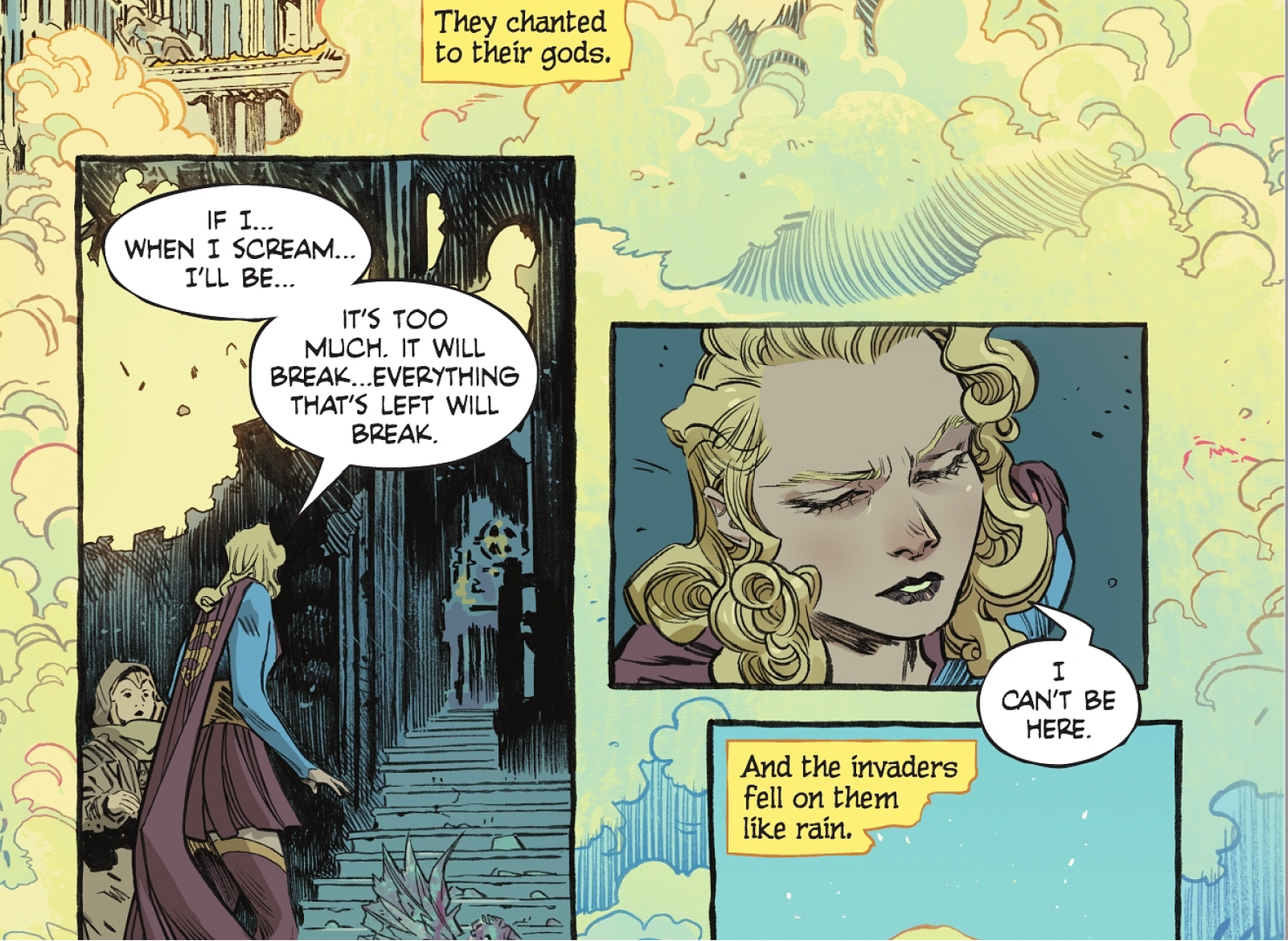
- Once & Future Vol 4: Monarchies in the UK by Kieron Gillen / Dan Mora (BOOM! Studios)
- Saga, Vol. 10 by Brian K. Vaughan, Fiona Staples, Fonografiks (Image Comics)
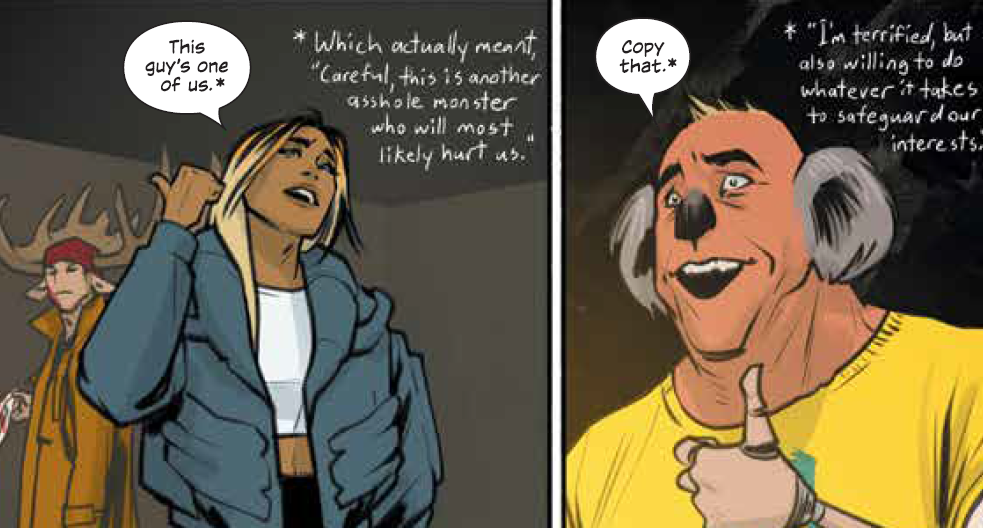
- Monstress Vol. 7: Devourer by Marjorie Liu and Sana Takeda (Image Comics)
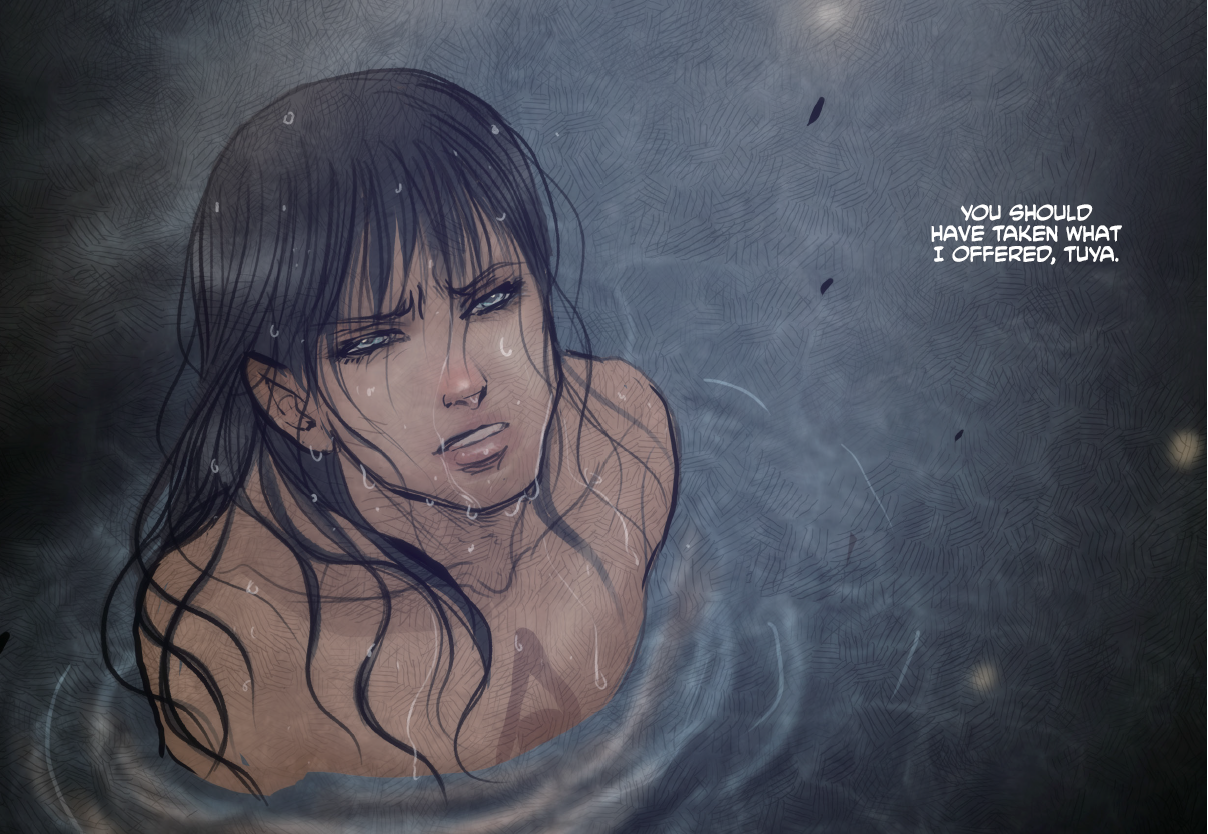
- Cyberpunk 2077: Big City Dreams by Bartosz Sztybor, Filipe Andrade, Alessio Fioriniello, Roman Titov, Krzysztof Ostrowski (Dark Horse Books)
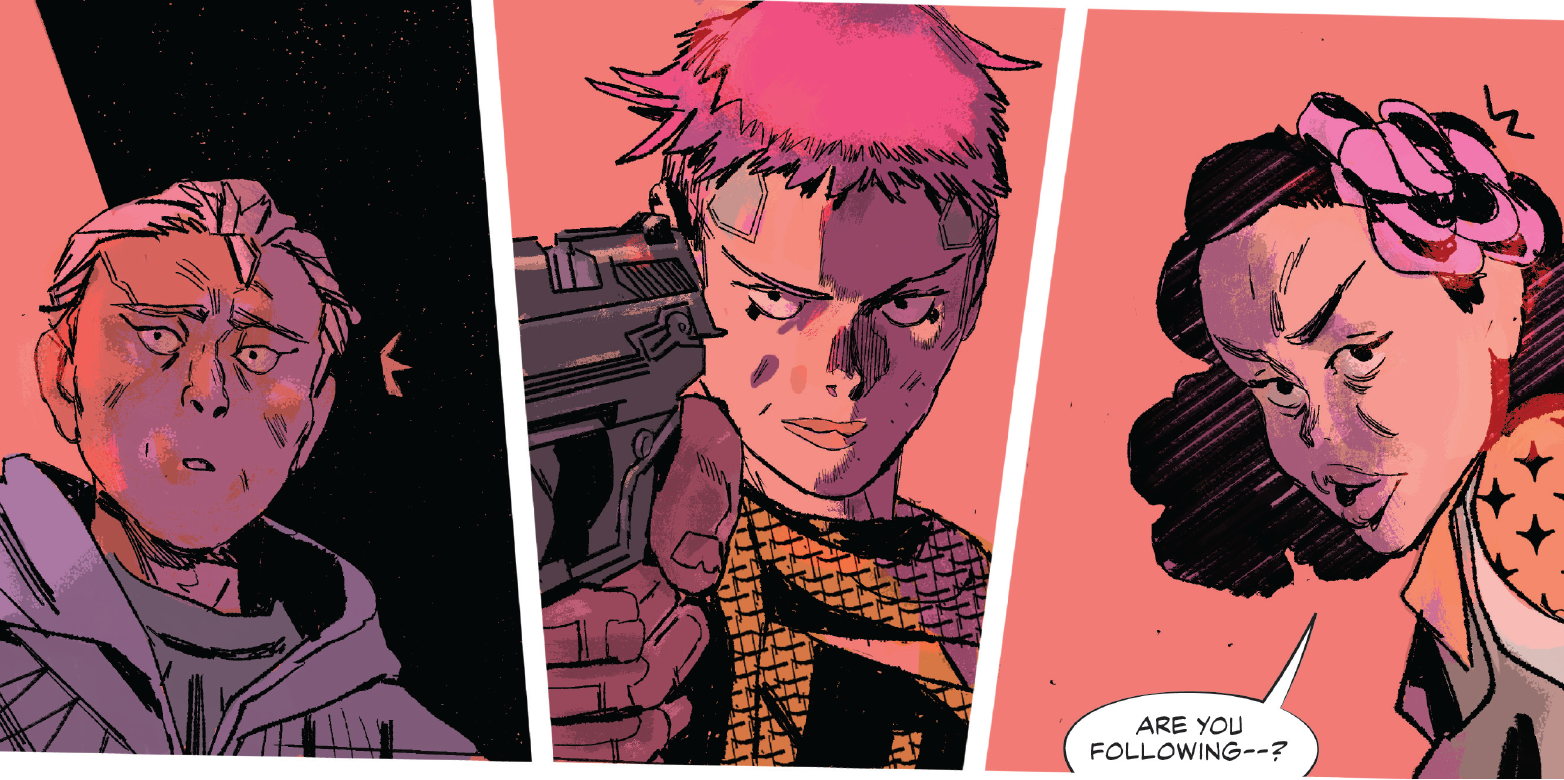
- Dune: The Official Movie Graphic Novel by Lilah Sturges, Drew Johnson, Zid (Legendary Comics)--They didn't provide a copy, and somehow NONE of my local libraries had it either?
Best Series
In my defense for the ones flagged purple here, I'd read at some/most of the texts already, just not the most recent ones.
- October Daye by Seanan McGuire (DAW)
I've read every book in the series except the very latest one, which just came out a couple of weeks ago. (I feel that warrants a purple instead of a pink coding, since the most recent book isn't in the eligibility window.)
I could have been a sheathed sword, and she, out of fear of my sharpness, tore my sheath away. Now I was a naked blade, and I was going to have her heart, as our father had forbidden her to have mine. I was going to end her.
- The Scholomance by Naomi Novik (Del Rey)
All three books read!
And yes, on some deeper level I knew too well that it wasn't real, but anyone who's made it out of the Scholomance knows how to keep their screaming on the inside.
- Children of Time Series by Adrian Tchaikovsky (Pan Macmillan/Orbit)
I was able to read the first book in the series, Children of Time (a 600-page whopper)--but not the following two, before the deadline.
Even if you have personal doubts, you cannot deny that the traditions that have built Great Nest have allowed us to survive many threats. They have made us what we are.
Bianca seems sad. And now they prevent us from being all that we could be, she suggests. And that is at the heart of me. - The Founders Trilogy by Robert Jackson Bennett (Del Rey)
From Foundryside:
Sancia did not exactly like her talents: they were as restrictive and punishing as they were powerful. But they’d helped her stay alive. And tonight, hopefully, they would make her rich.
- Rivers of London by Ben Aaronovich (Orion)
I was able to read the first of the series--they included NINE novels in the voting packet!
Could it have been anyone, or was it destiny? When I'm considering this I find it helpful to quote the wisdom of my father, who once told me, 'Who knows why the fuck anything happens?'
- The Locked Tomb by Tamsyn Muir (Tordotcom)
All three books so far read!
The only terrible part was an awful longing to let her head go below the surface, to lose all buoyancy and lie at the bottom like a flat fish. Nona didn't want to die, but she wanted to sit in the water and drowse, which she was forced to admit was the same thing eventually.
Best Short Story
- “Rabbit Test” by Samantha Mills (Uncanny Magazine, November-December 2022)
She’s hearing her fate screamed through a bullhorn, she is stepping up to the mic and agreeing my mother saved my life and your mother saved yours, she is two months shy of turning eighteen and nursing the sting of a slap on her face, she is locked in her room except for mealtimes and exercise, she is locked in her cell except for mealtimes and exercise, she is watching her entire life pass by and wondering who she would have been if she’d been allowed to make up her own mind.
- “Resurrection” by Ren Qing (Future Fiction/Science Fiction World, December 2022)
It was the second night since his resurrection, and Wang Xinguang had a dream in which he saw a white horse walking on thick ice. Under the ice was an abyss of inextinguishable flames. “Horse." He remembered the word.
- “On the Razor’s Edge” by Jiang Bo (Science Fiction World, January 2022)
I quickly recalled the technical requirements again, then took a step, then another step. Spacewalking is not only a technical activity, but also a test of courage. There is an infinite darkness around us, and only the white module beneath our feet is our only reliance.
- “The White Cliff” by Lu Ban (Science Fiction World, May 2022)
Yanli nods and looks at the endless white barrier in the distance, isolating him from the nearby coast. A great regret suddenly comes up in his heart.
He has never been to the seaside, even once. - “Zhurong on Mars” by Regina Kanyu Wang (Frontiers, September 2022)
Now that life was gone, the number of things Zhurong had to take care of every day had decreased, but the resources under eir control had increased massively. E decided to try something different.
- “D.I.Y.” by John Wiswell (Tor.com, August 2022)
Noah said, “There is no educational resource in the cosmos greater than a nerd who thinks you’re wrong.”
Every time we hit a wall in our plan, we made another account and trolled forums pretending to be someone who believed what we actually wanted to do was impossible. We never thought we were smarter than everyone else; we just had to trick people into making us smarter.
Best Novelette
- “We Built This City” by Marie Vibbert (Clarkesworld, June 2022)
Once upon a time, her mother was here, lifting the beams supporting her into place. That is easier to imagine. The dome a fragile, empty thing, alone in the feral clouds of Venus, no city inside yet.
- “Murder By Pixel: Crime and Responsibility in the Digital Darkness” by S.L. Huang (Clarkesworld, December 2022)
This further provokes that larger ethical question. Even if it’s determined that, legally, Sylvie is little more than a First Amendment expression, how much of her current actions are the responsibility of the person who made her? Moreover, even if Lee-Cassidy can be considered at fault, is she right that all Sylvie does is play the ghost of Christmas Future, and these men were only forced to face themselves?
- “If You Find Yourself Speaking to God, Address God with the Informal You” by John Chu (Uncanny Magazine, July-August 2022)
He’s both genuinely friendly and scary as fuck. I’ve been hoping to see him transform into someone not so physically austere and forbidding. That transformation is clearly never going to happen.
- “A Dream of Electric Mothers” by Wole Talabi (Africa Risen: A New Era of Speculative Fiction, Tordotcom)
I don’t care about the cabinet meetings. I don’t care if this is thoughtspace or a dream or an illusion or whatever. This is all I have left of my mother, imperfections, complexities and all, and I want to hold on to her with every fiber of my being.
- “The Difference Between Love and Time” by Catherynne M. Valente (Someone in Time: Tales of Time-Crossed Romance, Solaris)
We first met when I was six. Our fathers arranged a play date. The space/time continuum looked like a boy my own age, with thick glasses in plastic army camouflage-printed frames, a cute little baby afro, and a faded T-shirt with the old mascot for the poison control hotline on it.
- “The Space-Time Painter” by Hai Ya (Galaxy’s Edge, April 2022)--The provided work did not include an English translation, alas.
Best Novella
- A Mirror Mended by Alix E. Harrow (Tordotcom)
I doubt they’ve ever lain awake at night, feeling the bounds of their narratives like hot wires pressing into their skin, counting each breath and wondering how many are left, wishing—uselessly, stupidly—they’d been born into a better once upon a time. But that’s not how it works. You have to make the best of whatever story you were born into, and if your story happens to suck ass, well, maybe you can do some good before you go.
- Even Though I Knew the End by C.L. Polk (Tordotcom)
“And all I have to do for my soul and a thousand dollars is find the White City Vampire.”
She lifted her half-filled coupe of champagne. “Correct.”
“That’s quite the offer,” I mused. “Plus expenses?” - What Moves the Dead by T. Kingfisher (Nightfire)
It did not try to escape. That was somehow the most horrible part of all. It crawled back to its position in the circle of hares and it sat up, despite half its skull being missing.
- Into the Riverlands by Nghi Vo (Tordotcom)
They weren't brave, and despite the shaved head and the indigo robes, they weren't particularly virtuous, but more than anything else, they were curious, and sometimes that could stand in for the rest.
- Where the Drowned Girls Go by Seanan McGuire (Tordotcom)
"I just said something big and ridiculous and impossible that can't possibly be so. Now it's your turn to say something big and ridiculous and impossible. I want you to believe me, so I'll believe you, and then we'll be friends, because friends believe each other."
- Ogres by Adrian Tchaikovsky (Solaris)
And right then you're in no position to appreciate it, lost in a welter of guilt and panic, but it's the first time people look at you like that. Not fond, not exasperated. You're not the prodigal son or the lovable rogue right then. You're the hero who slays the monster.
Best Novel
- Nettle & Bone by T. Kingfisher (Tor Books)
"So you built yourself a dog and found yourself a wolf. If a fox shows up looking for you, we'll have a proper fairy tale and I'll start to worry."
"Why?" asked Marra. "If I'm in a fairy tale, I might actually have a chance."
"Fairy tales," said the dust-wife heavily, "are very hard on bystanders." - The Daughter of Doctor Moreau by Silvia Moreno-Garcia (Del Rey)
Moreau’s daughter was forever supposed to remain a girl, like the dolls that watched her intently. But she was restless; she felt as if she’d overgrown her skin and must molt.
- Legends & Lattes by Travis Baldree (Tor Books)
"I think I'd been looking for a way out for years. Adventuring, fighting, hunting bounties--you're either bleeding yourself slow from a hundred wounds or waiting on one deathblow. But you get numb to the possibility of anything different. This was the first time something else made me feel a way I wanted to keep feeling. So, here I am, and with some blood still in me."
- The Kaiju Preservation Society by John Scalzi (Tor Books)
"The only real question is, who are the monsters?"
"They ask that question in every monster movie, you know. It's an actual trope."
"I know," Tom said. "What does it say about us that it's relevant every single time they ask it?" - Nona the Ninth by Tamsyn Muir (Tordotcom)
She looked up at the sky and she bellowed: "You said you wouldn't do anything weird!"
- The Spare Man by Mary Robinette Kowal (Tor Books)
She rotated the cane in her hand and made a call to Fantine. "Hi. I'm about to do something very stupid. I know you're surprised."
And, WHEW, that's it! So much good stuff, y'all. - “We Built This City” by Marie Vibbert (Clarkesworld, June 2022)
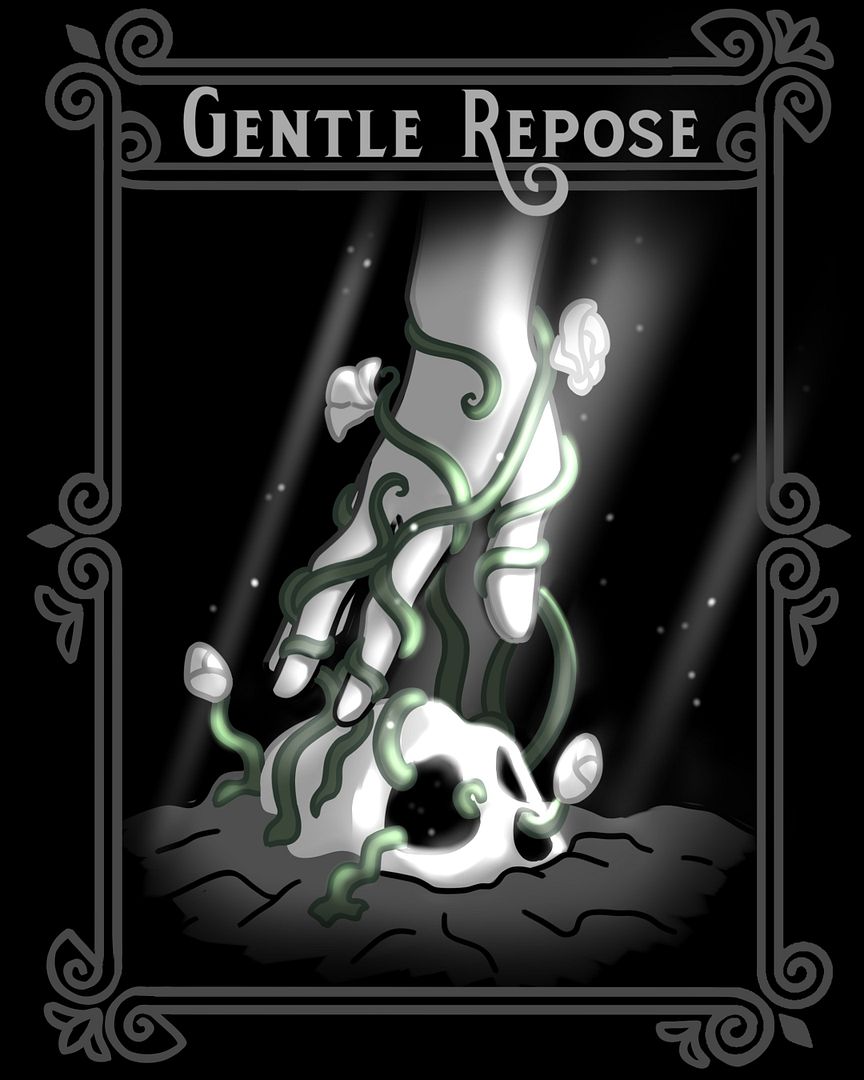

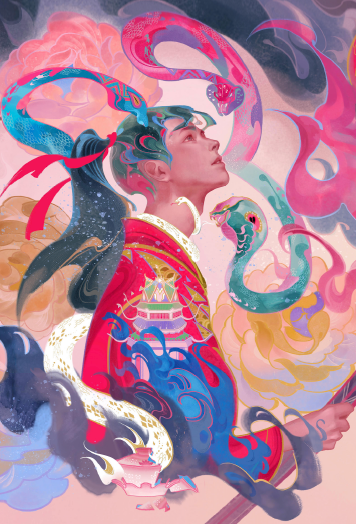
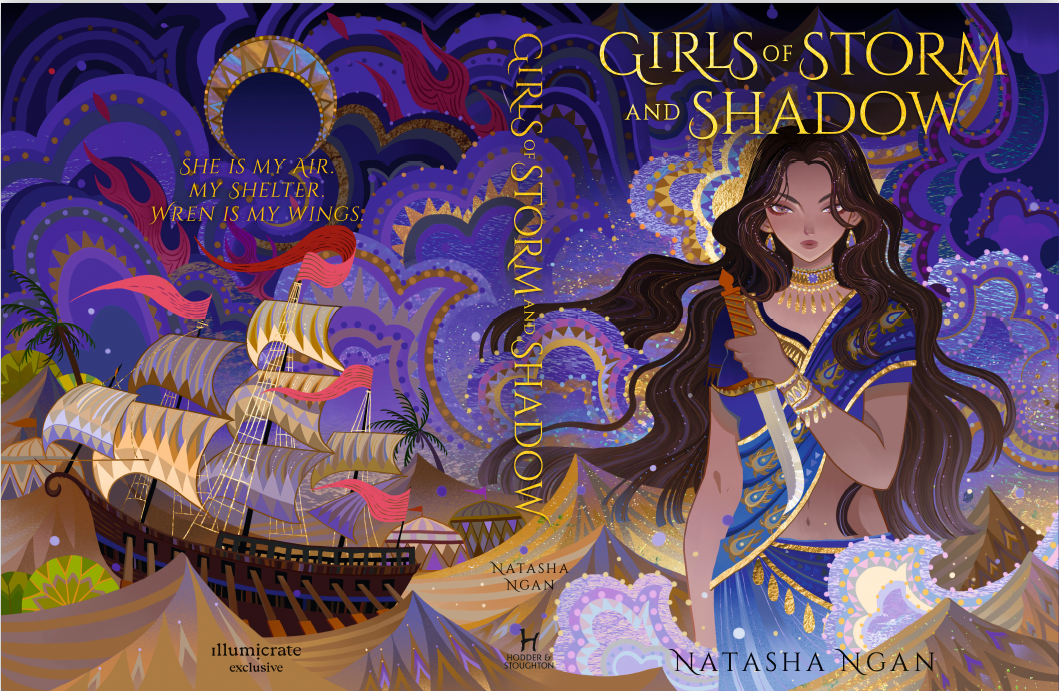
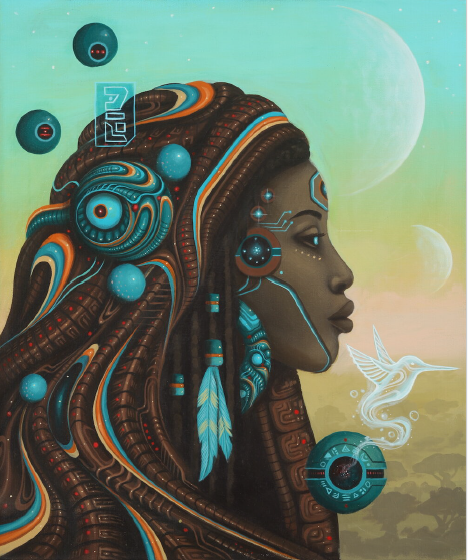
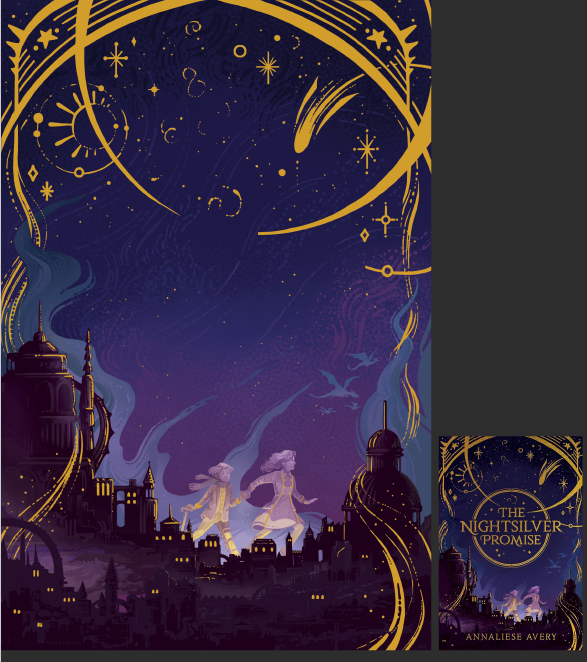
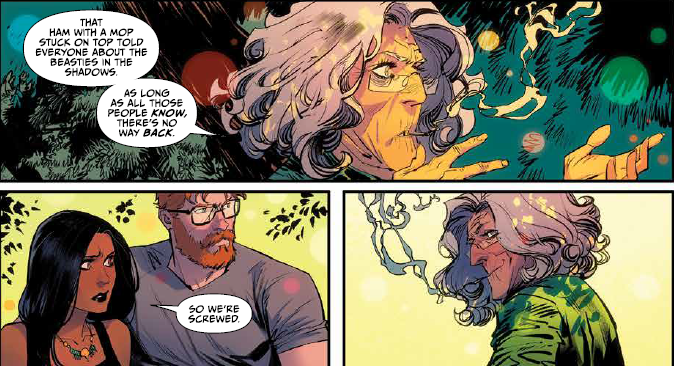
No comments:
Post a Comment